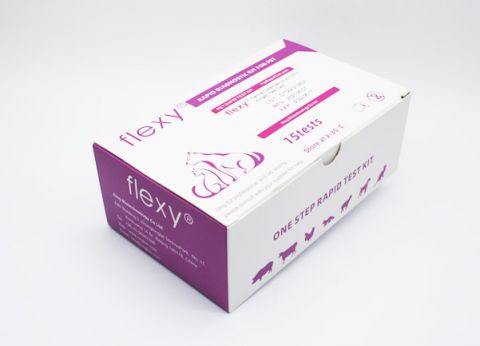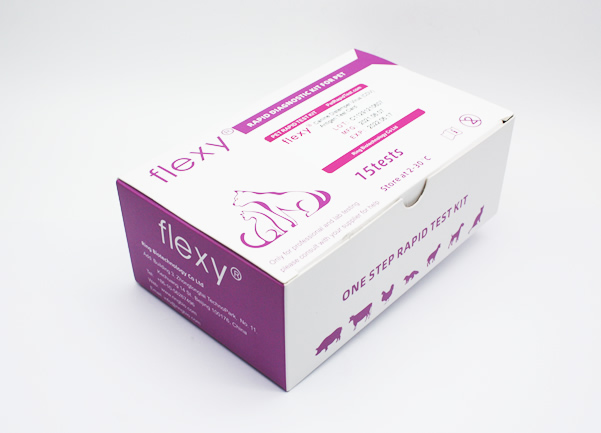
Canine Adenovirus type-1 Real-time PCR Test Kit can be used to detect CAV-1 nucleic acid in canine mouth, nose and throat swabs., which is rapid, accurate and easy-to-operate. Sensitivity 100%, Specificity 100%.
Basic information
Canine Adenovirus type I (CAV-1) infection is a common but transient contagious disease of the respiratory tract of dogs, causing mild fever, oculonasal discharge, coughing, and poor weight gain. This kit uses fluorescence probe PCR (RT-PCR) method to detect the deserved gene of CAV-1, which is helpful for diagnosis, monitoring and epidemiological investigation of CAV-1.
Key facts of the Canine Adenovirus type-1 Real-time PCR Test Kit
- Ready to use kits for vet clinic
- No extraction required
- Result in 30min.
Canine Adenovirus type-1 Real-time PCR Test Kit Components
| Item # | Item | Qty |
|---|---|---|
| 1 | PCR reaction solution | 120ul |
| 2 | Negative Control | 50ul |
| 3 | Positive Control | 50ul |
| 4 | Exogenous Gene Control | 50ul |
| 5 | Sample buffer | 1ml |
| 6 | Enzyme mix | 10ul |
| 7 | Kit user manual | 1set |
What are the symptoms of Canine Adenovirus type-1 infection in dogs?
In the mild form, an affected dog may merely have a decreased appetite, appear depressed, and have a mild fever. Some dogs develop opacity of one or both corneas of their eyes one to two weeks later. Dogs may have respiratory signs, such as eye and nasal discharge and a cough that is indistinguishable from other forms of upper respiratory tract infections or kennel cough.
In severe cases, usually in young puppies, along with the fever, depression, and loss of appetite, there is abdominal pain, vomiting, diarrhea, edema of the head and neck, and possibly jaundice. Such cases are often fatal.
How should a dog be treated if it becomes infected?
Treatment can be done on an outpatient basis when the infection is in its early stages. However, treatment is usually hospitalization. For electrolyte imbalances caused by vomiting and diarrhea, fluid therapy will be given. Potassium and magnesium are often low and require immediate replacement. Blood component therapy will be given for coagulopathy (a disorder of the blood's ability to clot). Nutritional support will include eating frequent meals as tolerated, optimizing nitrogen intake, and feeding the dog according to protein requirements. The amount of protein will depend entirely on your dog's individual condition, as some dogs are high in protein and others are low. Inappropriate protein restriction may impair tissue repair and regeneration. Partial intravenous nutrition will be given for up to five days, or preferably full intravenous nutrition if the dog cannot tolerate oral feeding. Your doctor will prescribe antibiotics or fluid reducers as needed.
Extended reading
- Canine adenovirus type 1 causing neurological signs in a 5-week-old puppy,BMC Veterinary Research
-
Infectious Canine Hepatitis,MSD MANUAL Veterinary Manual




